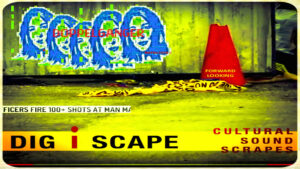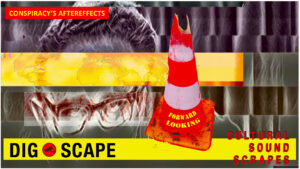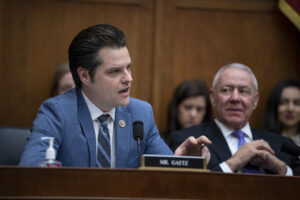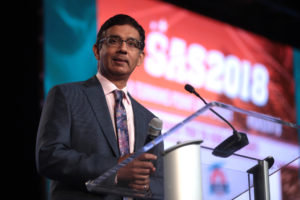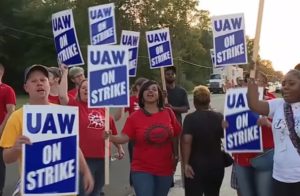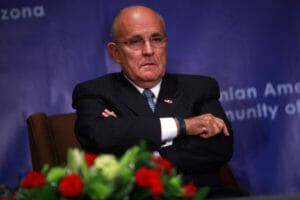‘Operation Popcorn’ Explores How U.S. Vietnam War Policy Shaped Allies’ Identities
The film follows a bizarre series of events that ultimately results in 10 Hmong leaders and a retired U.S. Army officer facing conspiracy charges.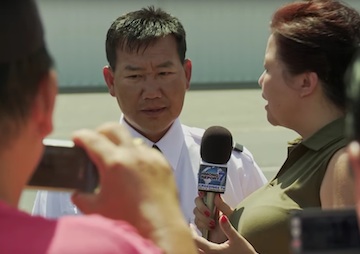 Locha Thao faces questions from reporters. (Screenshot via YouTube)
Locha Thao faces questions from reporters. (Screenshot via YouTube)
Locha Thao faces questions from reporters. (Screenshot via YouTube)
Although it sounds like something straight out of Hollywood, the story behind “Operation Popcorn” is not fiction. It is, in fact, a tale of violence and desperation spanning several generations.
The feature-length documentary, directed by David Grabias, follows businessman-turned-activist Locha Thao as he embarks on a quest to help Hmong communities in Laos, eventually working with an arms dealer and a retired U.S. Army officer to supply weapons for a rebellion. Eventually, Thao, the Army officer and 10 other Hmong-American community leaders, including renowned Hmong war hero Gen. Vang Pao, are indicted on charges of conspiracy.
“Operation Popcorn” explores U.S. surveillance and war trauma, themes often tied to immigration and repatriation. Grabias spoke with Truthdig about the film, which took seven years to make. “Operation Popcorn” premieres Tuesday at 8 p.m. PDT (check local listings) as part of WORLD Channel’s “America ReFramed” series. *** What do you think “Operation Popcorn” can teach us about today’s American foreign relations, particularly in regard to government surveillance?
I think that the relationship between the Hmong and the U.S., initiated during the Vietnam War, provides lessons for how we should act towards other allies in conflicts around the world. From Iraq to Afghanistan, the U.S. seeks local proxies who can fight with—or for—us. What happens when a war doesn’t go our way, or when the conflict ends? What debt do we owe these people? If we do owe them something, how should we repay them? The Hmong veterans of the secret war are not eligible for veterans benefits here in the U.S., because they were considered mercenaries, not official U.S. armed forces. They feel enormously disrespected by that opinion, and it sends a clear message to other people who might be fighting on our behalf elsewhere in the world today that the U.S. does not take always care of its friends once the battle is over.
What are the parallels between the refugee process initiated by the United States toward the Hmong people and the treatment of Syrian refugees today? How do you think the actions of Locha and the other Hmong leaders reflect feelings of anger and resentment commonly found in other American immigrant communities?
I think on a certain level, Locha expects the U.S. government will help, that the CIA will feel some guilt and responsibility towards the Hmong and provide what assistance they can. That mistaken idea leads him to engage with the arms dealer when he appears out of nowhere, rather than walking away from the whole thing, which is what many other people would do.
In our film, professor Mai Na Lee makes the statement, “We have a right to this land, because we’ve … sacrificed blood.” I think the Hmong resent the fact that they are grouped in with other immigrant groups under a general banner of “other,” with no regard for their specific experience and the loss of lives and land that they suffered as proxies for the U.S. government. I hope the film contributes in some small way to increasing awareness about Hmong history and garnering more appreciation for their contributions to America and the special relationship refugees have with our country.
For many people, the Vietnam War seems to be a “historic” event, but your film shows that violence against the Hmong people in Laos is an ongoing crisis. What do you hope audience members will take away from this film?
War is a horrific, traumatizing experience for any people, and “Operation Popcorn” shows clearly how its psychological aftershocks reverberate across continents and generations. The younger generation of Hmong-Americans who are born and raised in the U.S. are still coming to terms with family and community perspectives on the war and figuring out how to incorporate the idea of it into their ever-evolving notion of ethnic identity. Is being Hmong-American forever going to be defined primarily by the Vietnam War experience? I think not in the long term, but for the time being, it is a powerful influence.
At one point, Locha acknowledges that the operation was “fantasy,” not reality, and that he was just “going along with the show.” In the film, it’s explained that there is a history of CIA operatives approaching Hmong communities to incite change, and Steve [the arms dealer] continually pushes for concrete information and details. Locha’s lawyer also brings up the idea of entrapment. Do you think the American government takes responsibility in prompting Locha and the retired Army officer to organize a Hmong coup?
I think that if the U.S. government, and more specifically, the investigating agency in this case—the ATF (Bureau of Alcohol, Tobacco, Firearms and Explosives)—had done a bit more homework and reached out to the Hmong community at the very beginning, they may not have pursued their investigation and the whole plot wouldn’t have evolved. Clearly, the idea of a coup was a product of Locha and [the Army officer’s] conversations with Steve, and wasn’t part of their initial thinking.
I think there was a bit of a perfect storm, with ignorant law enforcement looking for a terrorist boogeyman, a community set up to expect some government agent to come in and help them, and Locha at the center of it, desperate to prove himself worthy of his elders and gain status in mainstream society. In the process, Locha fools everyone—his community, the U.S. government and even himself.
As Vang Pao’s son says, Locha was out of his league—but the violent videotapes inspired him to take action. What can this specific story tell us about the difficult politics of individual citizens trying to help oppressed peoples? What do you think is the future for Locha and other Hmong leaders in advocating for the Hmong people in Laos?
The film asks a couple important questions: What loyalty does a refugee or immigrant group owe to those they left behind? And how far can you go to help those in your homeland before you’ve crossed the line? One of the great things about the U.S. is the ability for any of us to lobby and politic freely and openly for a cause or ethnic community. But clearly there are laws in place that cannot be ignored, and committing to the use of force or violence to further your cause is a very slippery and dangerous slope—as the film illustrates.
There continue to be reports of sporadic violent conflicts between the Lao government and the Hmong there. Locha says he will continue to work on behalf of his people in Laos, but I haven’t heard about anything concrete being done to help them. I’m guessing it may partly be because the information we’re getting about the situation is spotty, and partly because the older generation of veterans is beginning to pass away.
Your support matters…Independent journalism is under threat and overshadowed by heavily funded mainstream media.
You can help level the playing field. Become a member.
Your tax-deductible contribution keeps us digging beneath the headlines to give you thought-provoking, investigative reporting and analysis that unearths what's really happening- without compromise.
Give today to support our courageous, independent journalists.
